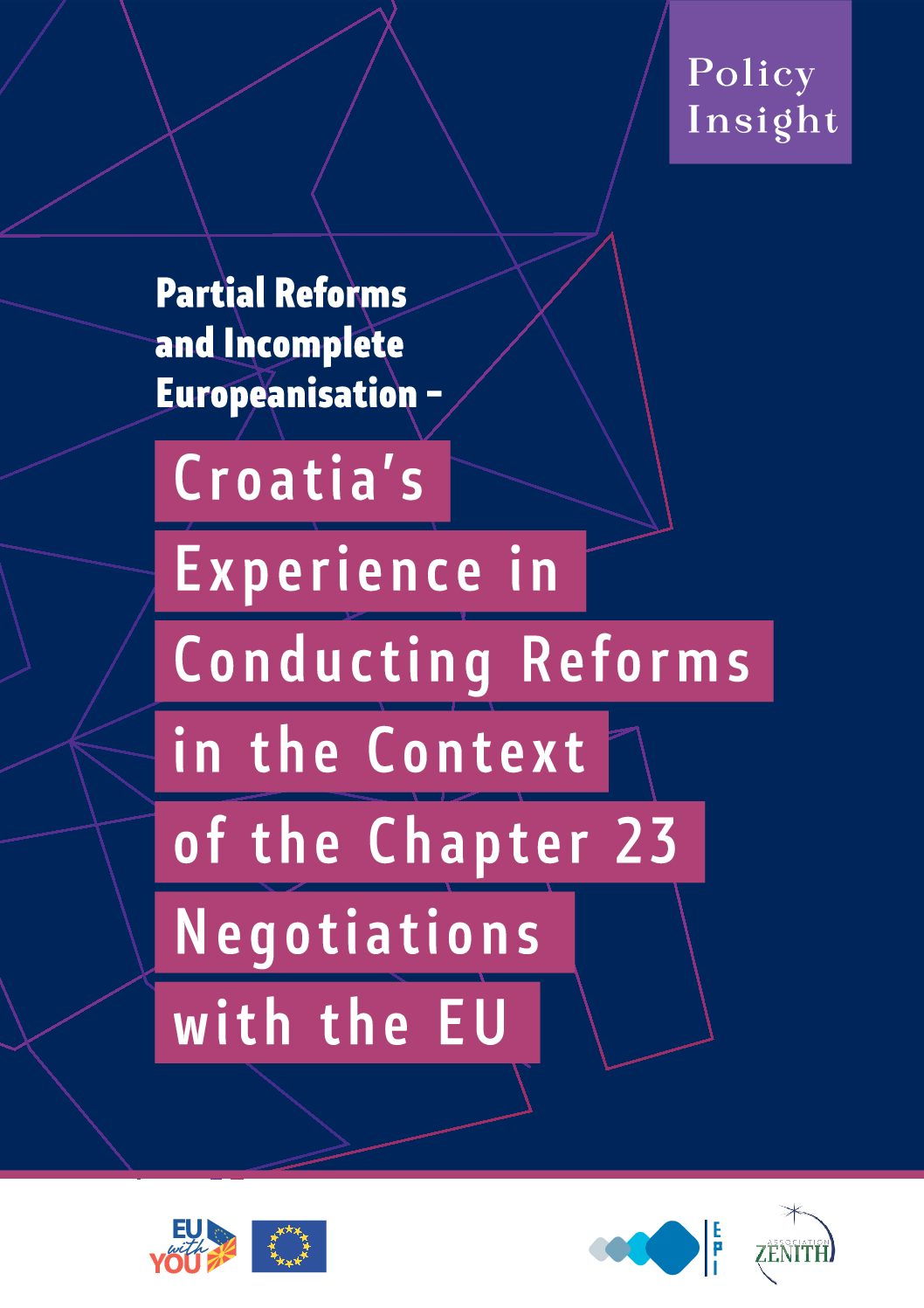Croatia became a member of the European Union on July 1, 2013, after more than ten years since it applied for membership in February 2003. Negotiations started in November 2005 with the ‘screening’ stage, while the first chapter on science and research was opened in June 2006. The start of the accession negotiation was made conditional by the EU based on the full cooperation of Croatia with the International Criminal Tribunal for former Yugoslavia (ICTY). After six years of negotiating, the accession negotiations were closed in June 2011, and finally, in December 2011, the EU and Croatia signed the accession treaty.
Chapter 23 on the judiciary and fundamental rights was probably the most challenging and publicly discussed part of the negotiations from the beginning – ever since the cooperation with the ICTY was an obstacle for opening the process of negotiations – until much later when progress in the judiciary and the fight against corruption reform processes were measured by the EU with tangible results, which was proven demanding for Croatia to manifest.
Nevertheless, the reforms conducted under the auspices of the EU negotiations undoubtedly transformed the judiciary accelerated the fight against corruption and improved the system for the protection of fundamental rights and freedoms. Although these reforms enabled Croatia to become a member of the EU, their results and outcomes were not entirely in line with expectations. Moreover, in the case of Croatia like in many other Central and East European EU member states, it is evident and clearly visible that after the EU conditionality had passed many of the started reforms were not finalised due to changes of political priorities or were reversed (either by changing or choosing not to implement the current policies).

